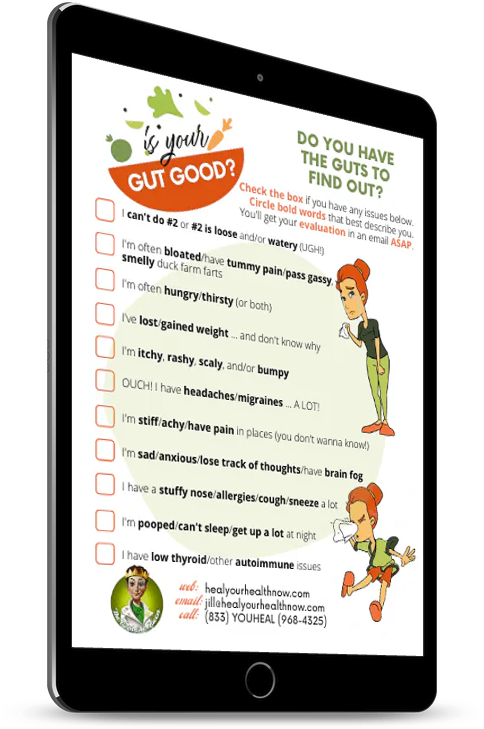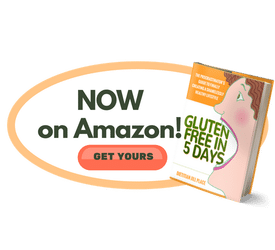 By Dietitian Jill Place
By Dietitian Jill Place
My client said to me the other day … “Food … choice not cheat”. Made me sit up and take notice. And started the wheels turning …
This brave lady … recovering from a severe eating disorder where she harmed herself. And spent extended time in several inpatient facilities. Where she admitted that she was “not ready” to give up what had become a life-threatening coping mechanism.
But she’s doin’ it! And this realization, once she internalizes it (which might take a bit of negotiating with her eating disorder self), is HUGE!
And I thought … this is HUGE for everyone. Because we grow up brainwashed by the diet culture. Dividing food into “good” and “bad” camps.
And causing disordered eating to varying degrees in most of us. A Google search for “cheat days” rendered 4,340,000 results.
Why am I bringing this up in a year that I’ve devoted to gut health? Well … the diet culture causes a lot of emotional back-and-forth that can only cause stress.
And if you don’t know by now, stress can cause leaky gut as much as poor diet and lifestyle … perhaps more so. If you don’t believe me, read my article, 4 Ways Stress Causes Leaky Gut.
So it’s just as important that we see eating as a pleasure, right, and choice. Because considering it as cheating can only lead to more and more stress.
And a more compromised gut. So I urge you to …
Rethink Cheating on Your Diet
I was watching one of my favorite TV shows the other day when the star admitted to cheating on her diet. Now this is an absolutely gorgeous woman who has starred in several TV series and was complaining about not being able to stick to whatever food plan she happened to be on at the time.
When I hear that phrase, “I’m cheating on my diet”, the hairs on the back of my neck stand straight on end! I hear it all the time from people. It seems to have worn such a deep groove into our consciousness that it’s a part of our everyday vocabulary.
The word “diet” used to mean anything we eat. Now we universally think of it as a rigid bunch of little boxes … both paper and cardboard … that either dictate things for you to eat or actually provide them for you.
They’re so rigid and they violate our psyches so much that we can’t help but deviate from them. So the idea of “cheating” has also become a universal concept. We have been acculturated to believe that the opposite of “diet” is “cheat”. That’s what happens when you deal with absolutes.
The bottom line is that a diet the way we think of it is an absolute. You either do it exactly as written or you don’t.
Which is ridiculous. Because no one eats that way; no one follows it to the letter. I remember one of my clients used a lot of her Weight Watchers point on ice cream.
And another was famous for “Cheat Days” which seemed to overflow into “Diet Days”, thus officially axing the diet.
I googled “cheating on your diet” and came up with 157,000,000 responses. If that doesn’t prove my “deep groove into our consciousness” idea, I don’t know what does.
Scientists Have Even Studied Diet Cheating
Research in the Journal of Consumer Psychology in 2016 entitled “The benefit of behaving badly on occasion: Successful regulation by planned hedonic deviation” showed the following …
Including planned goal deviations during extended goal striving, compared with following a straight and rigid goal striving process, (1) helps regain self-regulatory resources, (2) helps maintain consumers’ motivation to pursue with regulatory tasks, and (3) has a positive impact on affect experienced, which all contribute to facilitate long-term goal-adherence.
OMG … has it come to that? Even though the study was positive, we’re “behaving badly” and our “deviations” are, heaven forbid, “hedonic (defined by Webster as ‘relating to, or characterized by pleasure’)”.
So that the veritable necessity, thrill, and overall satisfaction of eating cowers in the face of negative epithets. What are we to do?
Well, here’s what I propose. Let’s wipe the diet slate, grease board, and all those boxes OUT of our consciousnesses on many levels and consider the following:
Take Back your Power
By the act of dieting, we give our power away to the diet to dictate our eating actions. So that our life becomes an endless cycle of deprivation and eating things we don’t want followed by “behaving badly” punctuated by “hedonic deviations”.
But we’ve been diet-brainwashed so long that just the thought of abandoning them is like jumping from a high precipice without a parachute.
So here’s where I’d suggest you start taking back your power …
Begin to Honor and Trust your Body
I avoided mirrors for many years. Now I get up in the morning and stand naked in front of a full-length mirror. I may not always like what I see. But it’s mine.
And I’m so glad that I have legs that move my body. And know that, with them, I can do Qigong (my practice is getting better and better) and reshape my body in whatever way I want.
So, when you trust your body, you also can …
Trust your Appetites
What DO you want to eat? My people with eating disorders, once they start to heal, have no idea, and much of our conversations are about structuring safe ways to find out.
The flip side is, once you trust your appetites, you don’t feel the need to overeat. I’m constantly in dialogue with my overeating self, bargaining with her in this way …
“Why do you have to eat 10 of them? Eat one slowly, savor it, and then see if you still have an appetite for more. Then go for it!” Once you trust your appetites, eating less and losing weight is easy-peasy.
Make Up your OWN Food Rules
I often tell clients that I can’t be there at 2am to pry the cookie dough out of their hands. You have to do it for yourself.
Once you realize that eating is a choice, you free yourself to trust your appetites. Then you can make up your own food rules … ones that suit only you. Some of mine are:
- One is enough. You can’t have two unless you check with your overeating self or your fullness (mine is a personification … a crocheted doll named ‘Jerri’ made for me by an artist in Ukraine. She’s even a snapshot screen saver on my phone) to make sure you’re still hungry. You can also rate your hunger on a scale of 1 to 10 and check in with yourself often during a meal. But I prefer Jerri instead.
- Make one meal a salad meal. I’m embarrassed to say that I didn’t know how to do this until recently, but now I’m packing great salads in less than 5 minutes at least 5 days a week to take to work with me. And find myself both happier and healthier. For some great ideas about how to do this, check out my blog by clicking here.
- Allow satisfaction. This took a looong time because, as a dietitian, I know the intimate details about most foods.
If you’re used to dieting and scrutinizing every mouthful, you probably do too. Right now, I’m eating this scrumptious pasta with Bolognese sauce at one of my fave restaurants and enjoying every bite.
I slow down, take small bites, and eat slowly, another skill that took a while. But allowing in satisfaction is a HUGE food rule.
Because, after a while, you’ll find that food-scarfing will take a back seat to food-savoring. By the way, I’m taking home some of this. Even though it’s the lunch-size portion. SATISFACTION RULES!
Make “Cheat Days” “Choice Moments”
I HATE the “Cheat-Day” concept because, as you’ve already figured out, I HATE the idea of “cheating” and would prefer that you take back your power and choose what you’re eating instead.
And, to tell you the truth, a whole day of bon-bons, rich sauces, and humongous portions can majorly sabotage what you’ve tried so hard to achieve all week.
So here’s what I propose. If you absolutely can’t do without something like I often do, HAVE IT! That includes chocolate cake and other indulgences.
Be mindful of your fullness and whether your overeating self is saying “Eat it, Eat it”, and then make your own decisions. Be conscious, decide for yourself, and then, after you choose to digress from whatever you’ve planned to do for the day, get back on whatever chosen plan you have.
And, by all means, forgive yourself and move forward. It’s the only thing that works.


I use the word “protocol” it is a less dangerous, emotion filled word.
A protocol is changeable, it is workable, it is adaptable and flexable.
But for a healing kind of protocol it can come and kick you in the belly and put you into IBS, or hives etc.
Knowing yourself, knowing boundaries, limits and building a strong resolve is so important.
Researching alternatives, such as Lily’s stevia sweetened chocolate, learning how to make and savor healing nutrient dense dishes.
Learning how to shop, pack and travel with healing foods is a marvelous adventure.
The main point is to honor your body, to love you enough to figure it all out, and make baby changes.
When your body is so sensitive that you end up sabotaging yourself, time to have a heart to heart and make some decisions on being “a change agent” for you!
Understanding the “why” helps, stopping long enough to listen to the “silence” of your screams can be illuminating, and then being brave enough to figure out a plan of action.
Allowing yourself to be “an original art work” is scary, but freedom.
We each walk our own path, but it is much easier to keep following the “road map, then to figure it all out and draw a new life map. Hard, but rewarding work.
Life is complicated, food ways are established with tons of emotional markers.
Few understand the meanings, needs and empty holes in the heart.
Best